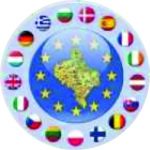
The need to train specialists in the specialty 292 “International Economic Relations” is caused by radical changes in the socio-economic environment of Ukraine, intensification of European integration processes, deepening international economic cooperation and structural reorientation of export-import activities of domestic businesses, which took place at the turn of 2013-2014 as a result of the “Revolution of Dignity”. This specialty is of particular importance for Ivano-Frankivsk region, where the key priority of international cooperation is to deepen cooperation with the EU, and since the signing and ratification of the Association Agreement between Ukraine and the EU, it has reached a radically new level. Ivano-Frankivsk region has a strong experience of interregional cooperation with EU regions in the field of development and implementation of cross-border and Euroregional cooperation projects, moreover, the scale of such activities is constantly growing.
Interregional cooperation with European partners provides the region with ample opportunities to establish close ties in the field of realization of economic and investment potential of the region; borrowing experience in doing business, as well as the introduction of modern production methods using the latest technologies. That is why there is a need for specialists who are well aware of trends and analyse the patterns of development of the global market environment, as well as masterfully negotiate business skills.
The main purpose of training specialists in the field of international economic relations is to obtain fundamental knowledge of the theory and practice of world economy development, international trade in goods and services, international capital movements, labour and intellectual property, international finance.
To achieve this goal, students must master the skills:
– to prepare for economic decision-making in international relations;
– of preparing analytical documents for government agencies and diplomatic missions;
– to develop strategies for building the image and brand of a country or company;
– of analysis and promotion of foreign economic interests;
– of developing national and economic security policies;
– of monitoring the market environment at the national and international levels;
– to ensure the economic efficiency of entrepreneurship in companies engaged in foreign economic activity.
